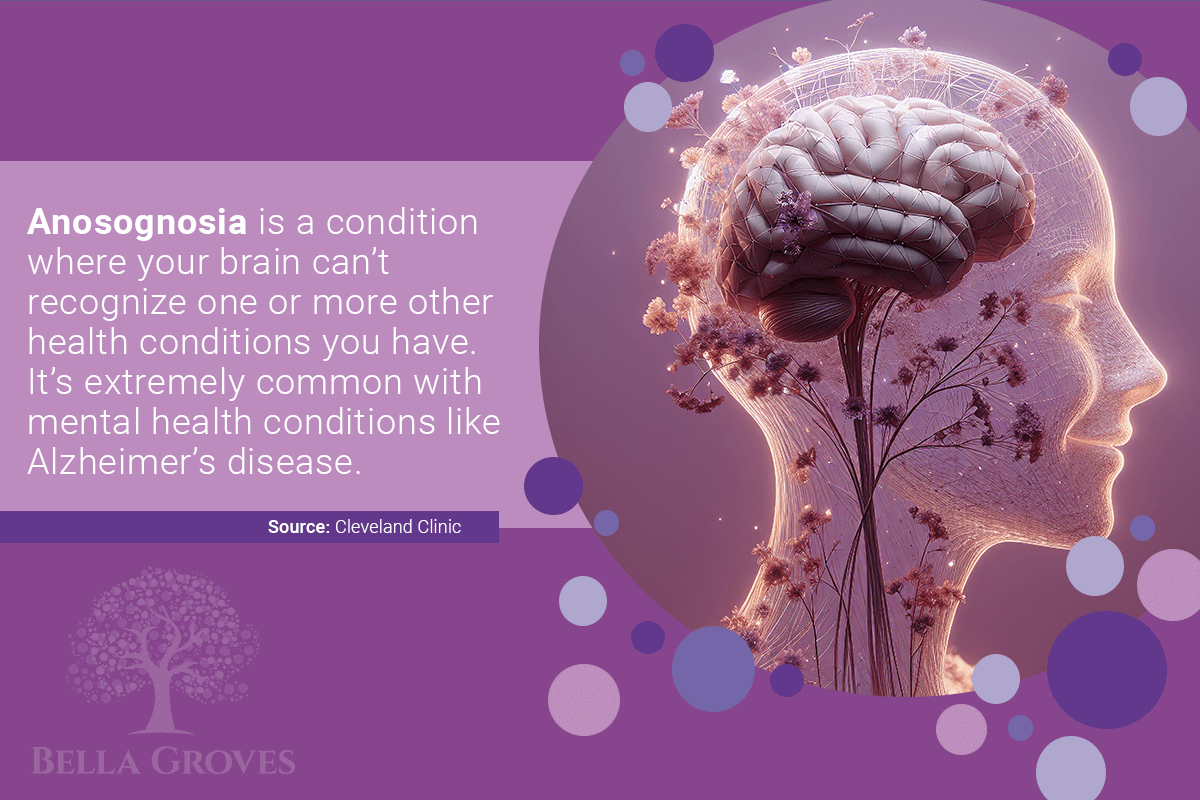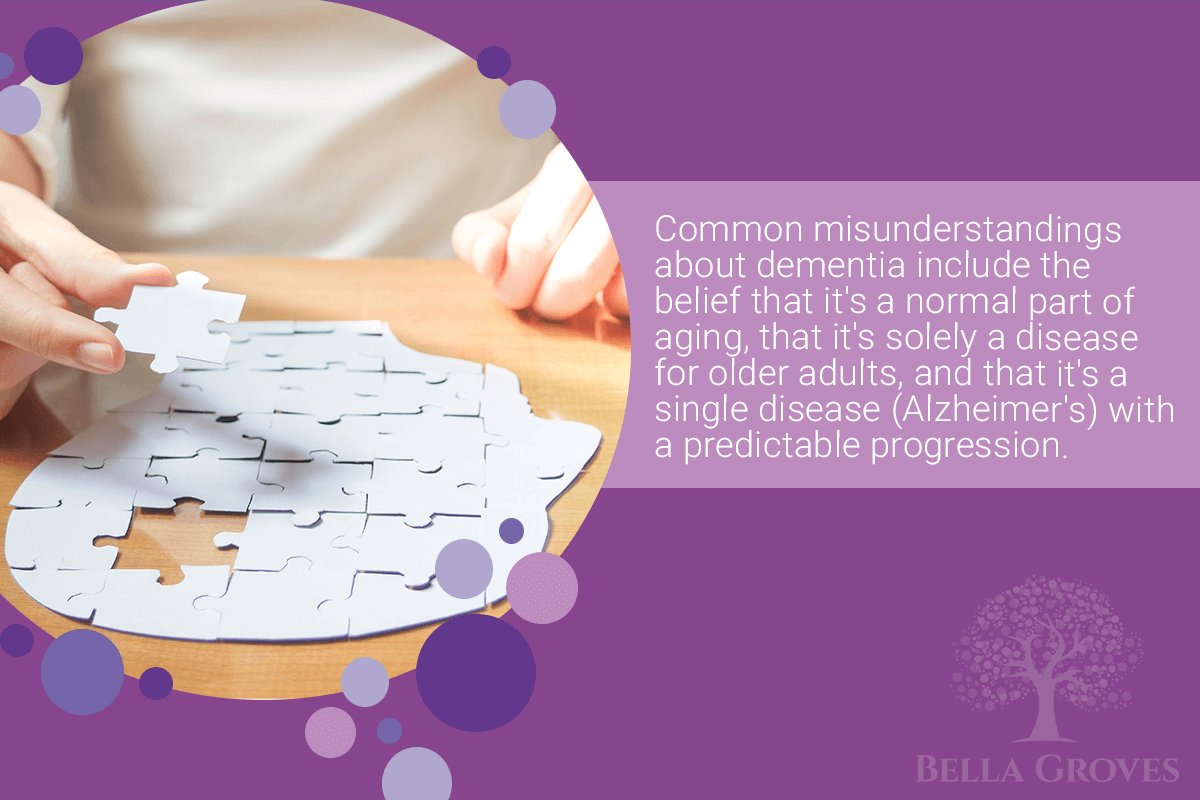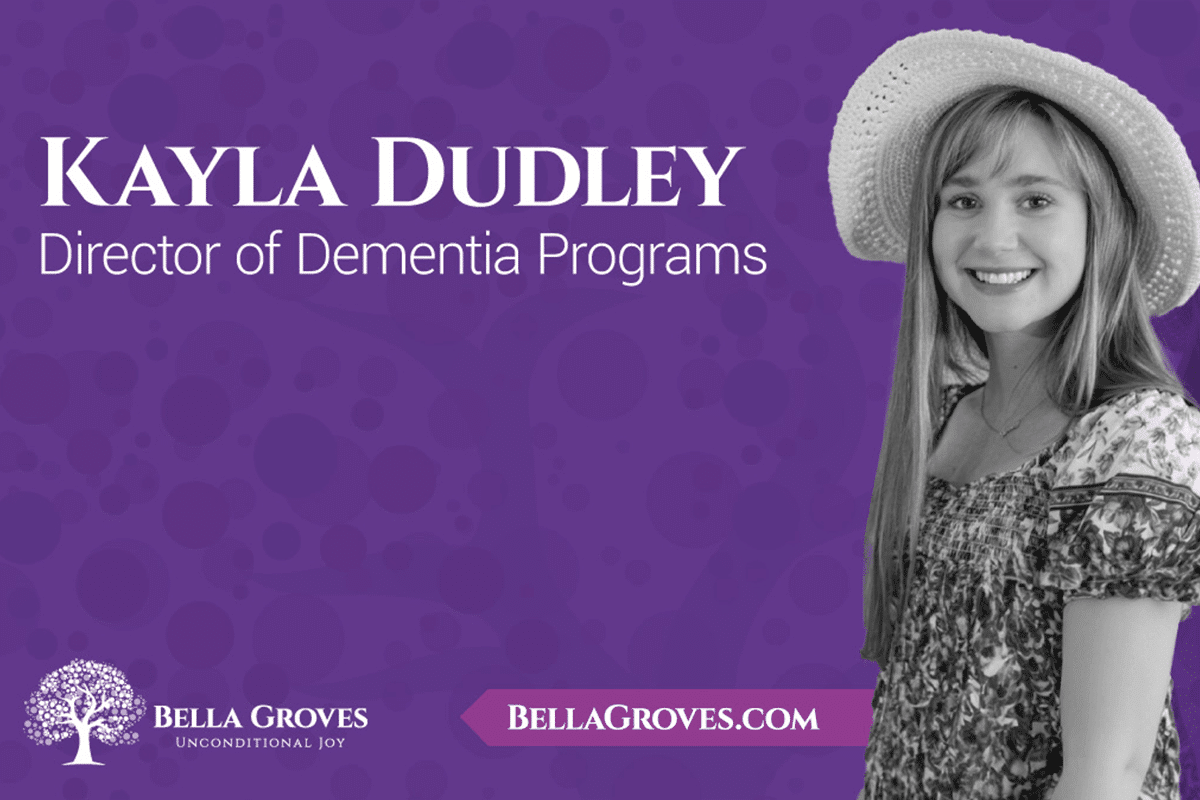
What is Anosognosia and How do You Cope with it?
Caregiving is one of the most rewarding roles a person can take on, but it does have its challenges. Whether you’re caring for a parent, spouse, sibling, or friend, few things prepare you for the complexities that arise when dementia affects someone’s ability to connect with reality. One of the most confusing and difficult aspects of this is anosognosia.
At Bella Groves, we’ve worked with countless families in Bulverde, San Antonio, and surrounding Texas areas to provide the dementia education they need. We’ve learned that understanding anosognosia is key to creating smoother caregiving journeys and fostering unconditional joy, no matter how tough the road gets. If you’re new to the concept, we’re here to help you make sense of it.
So, What is Anosognosia?
Anosognosia (pronounced “uh-no-sog-NOH-see-uh”) is a neurological condition that affects the self-awareness of the person experiencing it. This means someone living with dementia may be completely unaware of their cognitive decline. This isn’t denial or stubbornness; it’s the brain literally losing the ability to recognize its own impairments.
For care partners, this can feel like a constant push-and-pull. For instance, your family member may insist they don’t need help, criticize what they believe are “pointless” safety precautions, or resist important medical advice. The result can be a frustrating cycle of misunderstanding, but learning why this happens and how to manage it can make an enormous difference, not just for them, but for you.
Why Does Anosognosia Occur?
This lack of awareness stems directly from the damage or degeneration in specific regions of the brain caused by conditions like Alzheimer’s disease, vascular dementia, or traumatic brain injury. The frontal and parietal lobes, responsible for reasoning, cognitive judgment, and self-perception, are often affected.
Anosognosia varies from person to person. While some individuals intermittently acknowledge their memory challenges, others may adamantly refute even the most obvious difficulties. It’s not a choice they’re making, and care partners should understand that their responses come from the brain’s confusion rather than intent.
The Challenges of Anosognosia for Care Partners
Caring for a family member with anosognosia is emotionally taxing, especially since emotions often run high in caregiving situations. Here’s what makes this condition particularly difficult for care partners to manage.
Resistance to Help
You try to introduce helpful tools like fall-prevention measures or memory aids, and they may reject them outright, deeming them unnecessary. This can lead to feelings of helplessness and frustration.
Heightened Conflict
Everyday routines like taking medications, attending medical appointments, or even accepting a meal can spark arguments. These repetitive conflicts can feel like walking on eggshells daily.
Safety Concerns
Anosognosia can lead your family member to underestimate health risks. For example, they may refuse to stop driving despite significant signs of impairment, or they might wander away from safe environments without realizing the danger.
Guilt and Burnout
The disconnection created by anosognosia can leave care partners feeling unheard and unappreciated. Over time, this emotional toll can lead to burnout, making it harder to remain compassionate and patient.
Practical Strategies for Coping with Anosognosia
Supporting someone with anosognosia is far from easy, but there are methods that can improve your communication and ease daily caregiving stress.
1. Use Empathy, Not Arguments
Debating or trying to “reason” with someone with anosognosia rarely works. Instead of trying to convince them of their diagnosis, focus on how they feel. For example:
- Instead of saying, “You’re forgetting things all the time.”
- Try saying: “I know some days are a little harder than others, and I’m here to help.”
The goal is to validate their emotions while sidestepping conflict rooted in their inability to grasp the issue.
2. Reframe Conversations
Shift away from attempts to label their condition and focus instead on the practical or emotional benefits of your suggestions:
- “I know how much you like walking outside. This grab bar is here just in case it gets slippery.”
- “The doctor mentioned this pill will help you feel more awake and energetic.”
3. Simplify Choices
Presenting too many options can overwhelm them. Reduce decision-making stress by offering fewer, more straightforward choices or gently taking the lead when needed.
4. Create Safe Spaces
Modify the home to reduce risks. For example:
- Install locks in strategic locations and alarms on doors to prevent wandering.
- Remove driving privileges safely by focusing on alternative transport options they’ll enjoy (e.g., riding with a friend).
5. Seek Support for Yourself
Care partners often forget to care for themselves. Surround yourself with a support network and lean into available services that offer guidance, tools, and emotional relief.
Support for Care Partners of Individuals with Anosognosia
Caring for someone with anosognosia can be an isolating experience, but you don’t have to navigate it alone. There’s a wealth of resources and support available to guide you:
Join Local Support Groups
Connecting with fellow care partners in your community offers both emotional support and practical advice. Bella Groves can help you find meetups and support groups throughout San Antonio and its surrounding areas.
Seek Professional Guidance
Consulting with geriatricians, dementia specialists, or therapists can provide expert strategies to enhance your caregiving approach.
Explore Bella Groves’ Educational Resources
From workshops and seminars to comprehensive guides, we’re here to help you develop new skills and boost your confidence. Our community is built to support care partners like you every step of the way.
No one should have to face caregiving challenges alone—let us help you find the support you need.
Building a Community of Care with Bella Groves
Understanding anosognosia may not remove all the difficulties of caregiving, but it does offer clarity and connection. At Bella Groves, we believe love is greater than dementia. Every person deserves to be seen as more than just their condition.
You’re not alone in this. By leaning into dementia education resources, practical strategies, and support networks, you can create a caregiving environment full of compassion, patience, and joy.
If you’re feeling overwhelmed or want tailored dementia education for your family, Bella Groves is here to help. Contact us today to learn more about how we can support you and your family on this journey.


